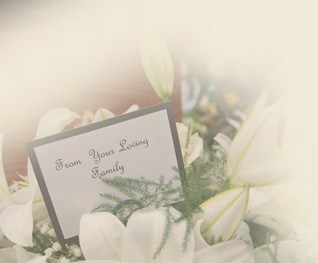The Baby Boomer generation has already made its mark upon the death-care industry, the first generation to demonstrate a changing attitude towards funerals. This post-war generation, that has been attributed to being radical and revolutionary in all aspects of their lives, is now impacting on the death-care industry as they face their ‘final curtain’ or deal with the death of loved ones.
Baby Boomers do it their way, and have personalized and customized rituals as they have used their power of sheer numbers over the last three decades or so. Economically they have reshaped our cultural landscape, leading the way towards the consumer society we know today.
Baby boomers reshaping the end-of-life process
Now as many Baby Boomers face important decisions about their parents’ end-of-life and their own funeral arrangements, the funeral industry has had to respond to their changing requirements. No longer is the traditional funeral the preferred option, Baby Boomers see death differently. They are not traditionalists and do not see a need to spend money on death.
Simple cremation is functional, and for those that do wish to mark their passing with distinction, the many personalized memorial services make a very befitting and personalized way to immortalize ones’ life! Ash scattering has developed into a whole new business on the crest of the rise in cremations, and new technology has brought about opportunities to create DVD tributes or even hold ‘online funerals’.
Baby boomers want simple cremation services
The baby boomer generation seems to be leading a trend for simple, no-fuss funeral alternatives or unique life-celebration events. A large number of seniors (over the age of 65) that we have interviewed agree that reducing funeral costs, and arranging something simple and creative, is more important to them than a traditional funeral service.
This senior population is embracing the notion of cremation. Frequently, I am told, “I just want a simple cremation“. But these baby boomers are also prepared to spend on incremental cremation products that help them memorialize in a more unique way. Cremation facilitates many more options for memorialization, and this appeals to boomers’ taste for personalization!
Baby boomers as the last generation with funds for lavish funerals

As the Baby Boomers face dealing with their parents’ death rituals, and realize the ludicrous costs involved with the disposition of a body, so they are faced with the uncertainty of how their own children will deal with their passing. They may be the last generation to have the cash means to cover the cost of an impromptu funeral. And so many of this generation recognize the need to undertake some preplanning of their funeral arrangements. Not only to ensure that the costs can be met without burdening their children, but also to ensure that their wishes are met.
The interesting new twist in how Baby Boomers are reshaping the death-care landscape relates to how death now eludes some even when they seek it. Having lived life to the full, many Baby Boomers are now realizing that an extended life does not necessarily offer a quality of life.
Physician-assisted suicide or the right to choose a dignified death
Having lived life the way they choose, Baby Boomers are now making demands on the very right to die as and when they chose. This week a group of health professionals has launched a campaign aimed at challenging the 1961 law on assisted suicide.
Euthanasia has long been considered an acceptable and humane way of caring for our loved animal ones. Strangely it is still very controversial in how it is employed to end the suffering of our human loved ones. Now, this is being more actively challenged by the generation who has provocatively challenged many ‘norms’ and traditions of our modern culture.
The baby boomer generation wants the right to end their life, as and when they wish, should they find themselves suffering. Is this so difficult for our society to accept? I suspect that more people have empathy towards euthanasia than is publicly reported. Yet still, it is only allowed in three US states (Oregon, Washington and Montana), the Netherlands, Belgium, and Switzerland. Japan also currently has no law criminalizing euthanasia.
Mainstream media has given some coverage to recent human stories relating to people who fight for the option of voluntary euthanasia or assisted suicide, but in the main, it is a subject still viewed as taboo. It is a subject little discussed or debated until it becomes personal.
In a world where pharmaceutical companies are making millions offering us every remedy and cure on the planet to sustain life, maybe we should look closely at why the ‘right to die’ is so resisted. I have watched a close relative die painfully from cancer within six months, and my elderly grandma eek out undignified and unnecessary last years of her life in full-time nursing care in her nineties. In each case, if either of them had felt that euthanasia was an option, I would have wholeheartedly supported them. None of us really want to watch loved ones suffer, and many departing rituals are really more for the living than the dead.
Let us hope that the baby boomer generation does leave their legacy mark on the final rites of passage.
Related Articles:
Resources:

